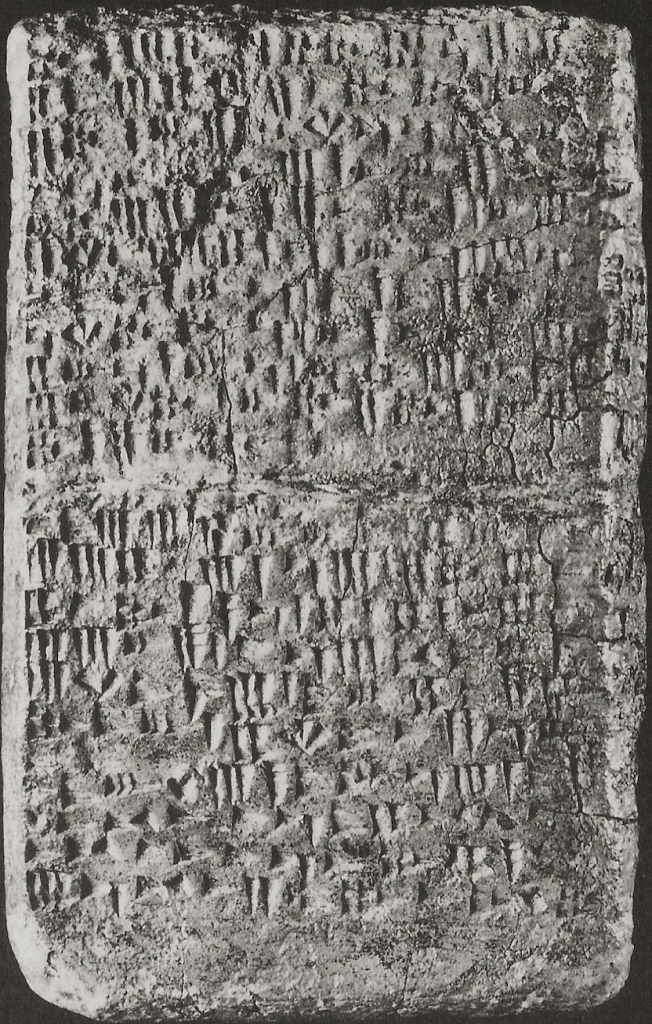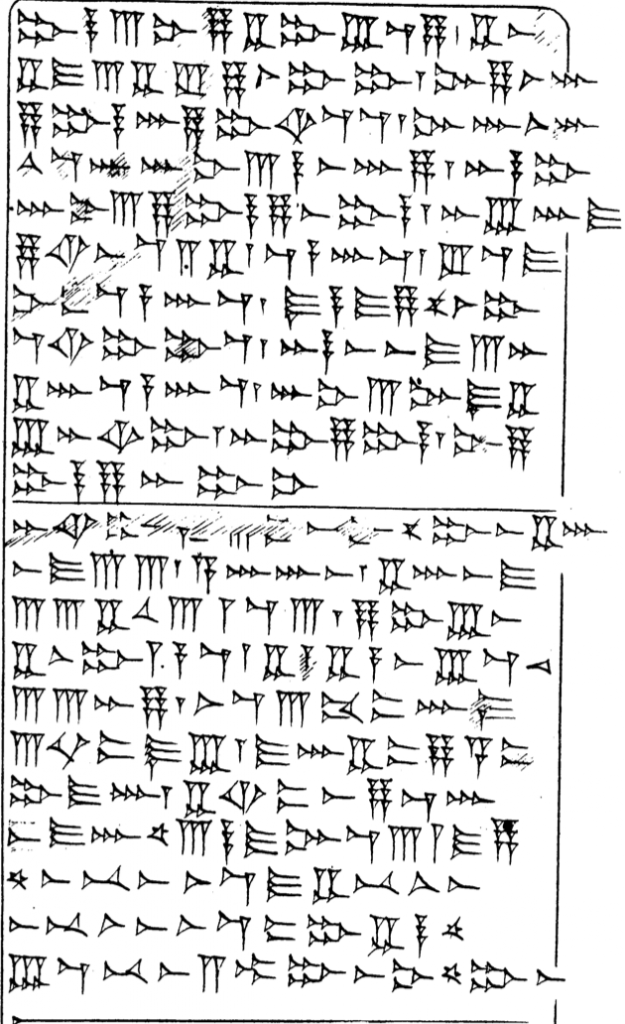About the Poem
Moon god Yarikh offers an impressive brideprice of gems and precious metals for the hand of lunar goddess Nikkal. When the daughter of storm god Baal is suggested instead, Yarikh insists that his heart lies only with Nikkal. Her whole family attends the transaction as witnesses.
| Ugaritic |
| yil’aku yarikhu nayyaru shamemi |
| `imma khirikhbi malki qetzi |
| tin nikkala yarikhu yitrakh |
| ‘ibbu ta`rubuma bibahatihu |
| wa’atinu muhraha le’abiha |
| ‘alpa kaspa |
| waribbata khuratsa |
| ‘ishlakhu tzuhurima ‘iqna’ima |
| ‘atinu shadaha karmama |
| shada dodiha churnuqama |
| waya`nu khirikhbu malku qetzi |
| le na`manu ‘ilima |
| le khatnuma ba`li |
| turukh pidray bitta ‘uri |
| ‘aqarribuka ‘abaha ba`la |
| waya`nu yarikhu nayyaru shamemi |
| wani `un `immanu nikkali khatni |
| ‘akhre nikkala yarikhu yitrakhu |
| ‘adanuha yashit matsba moznemi |
| ‘ummuha kappe moznemi |
| ‘akhkhuha yith`aru musharririma |
| ‘akhatatuha la’abni moznemi |
| nikkala wa’ibba du ‘ashiru |
| ‘ara yarikhu |
| wayarikhu ya’arki |
| English |
| Yarikh, the luminary of the sky, sends word |
| To Khirikhbi, king of summer: |
| “Get me Nikkal! Yarikh would wed her, |
| Let Ib enter his home! |
| Then I will give to her father, as her marriage price, |
| One thousand shekels of silver, |
| And ten thousand shekels of gold. |
| And I will send jewels of pure lapis lazuli. |
| I will make her field like a vineyard, |
| The field of her love like an orchard.” |
| Khirikhbi, king of summer, responds: |
| “O favorite of El, |
| O brother-in-law of Baal! |
| Wed Padriya, daughter of Light! |
| I will introduce you to her father Baal.” |
| But Yarikh, the luminary of the sky, replies: |
| “Now! look here! My marriage must be with Nikkal!” |
| Then Yarikh pays the bride-price for Nikkal. |
| Her father sets up the balance stand, |
| Her mother positions the trays of the scales, |
| Her brothers ready the standard weights, |
| Her sisters ready the ingots. |
| Oh, Nikkal-Ib, whom I sing. |
| May Yarikh shine bright, |
| May Yarikh shine on you. |
Listen to the Poem in Ugaritic
Listen to the Poem in English
Historical Information
Through the clause “whom I sing”, the poem is declared explicitly to be a song. This Ugaritic text dates to 1300 BCE, plus or minus. It derives from the ancient city-state of Ugarit, near the Mediterranean coast of Syria. On the left below appears a photo of the back of the tablet, which measures approximately 5 inches by 3 inches. The right column shows a modern handwritten copy.


Sources
***David Marcus’s English rendering is taken from Ugaritic Narrative Poetry, translated by Mark S. Smith et al., Writings from the Ancient World 9 (Society of Biblical Literature, 1997); vocalized transliteration of the Ugaritic language is based on the same source. Used by permission***
Curated by Edwin Hostetter, Department of Religion, George Washington University
